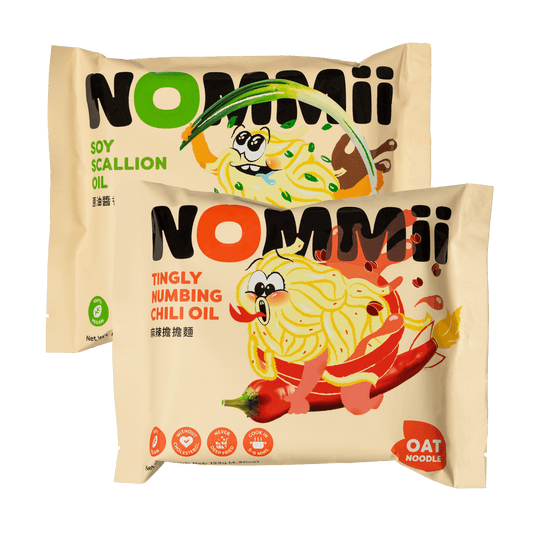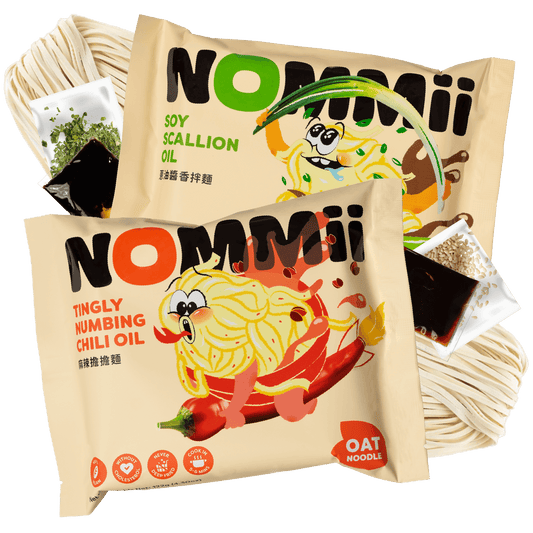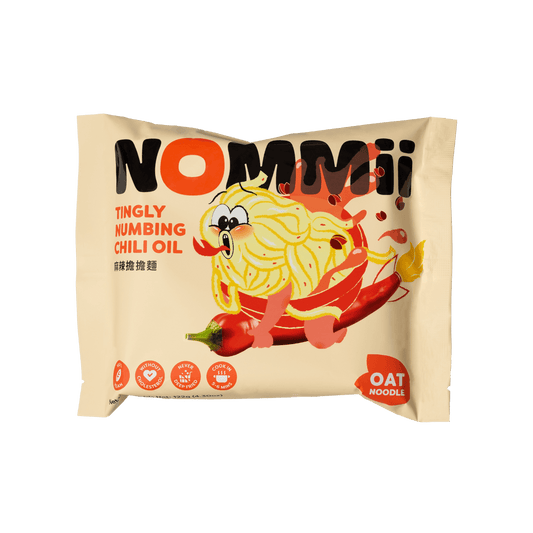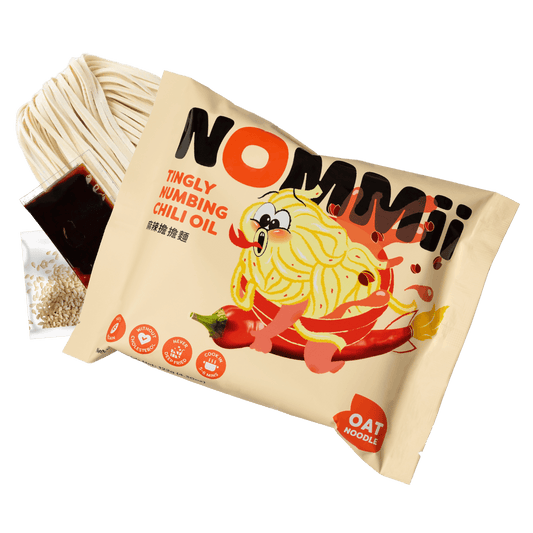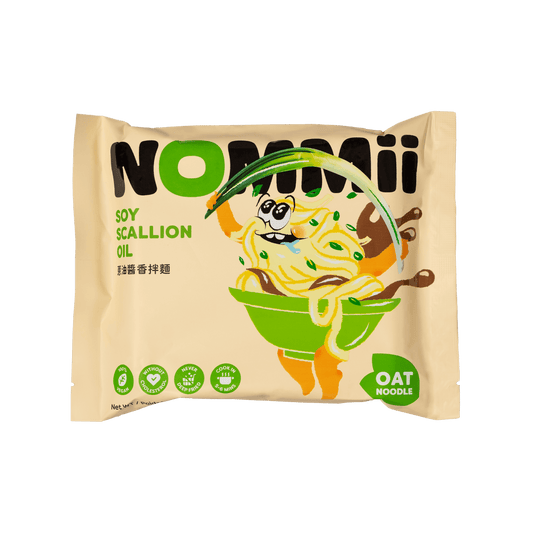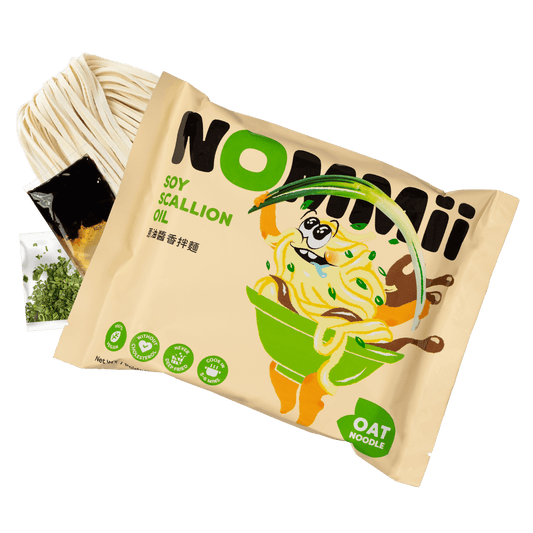
HISTORY OF SOY SCALLION OIL NOODLES
Soy scallion oil noodles, also known as cong you ban mian (葱油拌面) in Mandarin, have a rich history rooted in Chinese culinary tradition. This dish is a simple yet flavorful preparation that has evolved over time, becoming increasingly popular in recent years due to its accessibility and the trend of minimalist cooking.

ORIGINS AND HISTORY
Soy scallion oil noodles originated in Shanghai, a city known for its vibrant food culture and influence on Chinese cuisine. The dish is a reflection of Shanghai's approach to food: simple, elegant, and bursting with flavor. The key ingredients—scallions, soy sauce, and oil—are staples in Chinese kitchens, making this dish a common comfort food. The exact origins are difficult to pinpoint, but it is believed that this dish was developed by home cooks as a quick and satisfying meal. To make it even quicker, you can try NOMMii's Soy Scallion Oil Noodle, which includes the sauce packet already!

TRADITIONAL CONSUMERS
Historically, soy scallion oil noodles were eaten by the working-class population in Shanghai. It was a cheap, quick, and filling meal that could be made with ingredients readily available in most households. The dish was especially popular as a breakfast or a late-night snack due to its simplicity and the umami-rich flavor profile that made it satisfying.
RISE IN POPULARITY
The popularity of soy scallion oil noodles has surged in recent years, both within China and internationally. Several factors contribute to this trend:
- Culinary Simplicity: The dish aligns with the modern culinary trend of minimalist and ingredient-focused cooking. It's easy to prepare, requires few ingredients, and delivers a satisfying taste experience.
- Cultural Nostalgia: As people move away from their hometowns, there is a growing nostalgia for traditional, home-cooked meals. Soy scallion oil noodles offer a taste of home, making it a comfort food for many.
- Social Media Influence: The simplicity and photogenic quality of the dish have made it a favorite on social media platforms, where food bloggers and influencers share their recipes and variations. This has helped introduce the dish to a global audience.
- Health Consciousness: As more people seek out plant-based and simple diets, soy scallion oil noodles offer a flavorful option that is both vegan and relatively low in calories, appealing to health-conscious eaters.
CULTURAL SIGNIFICANCE
In Shanghai, soy scallion oil noodles are more than just a dish; they are a symbol of home and tradition. The recipe is often passed down through generations, with each family adding their own twist to the preparation. The dish's enduring appeal lies in its ability to adapt and remain relevant in both traditional and modern culinary contexts.

